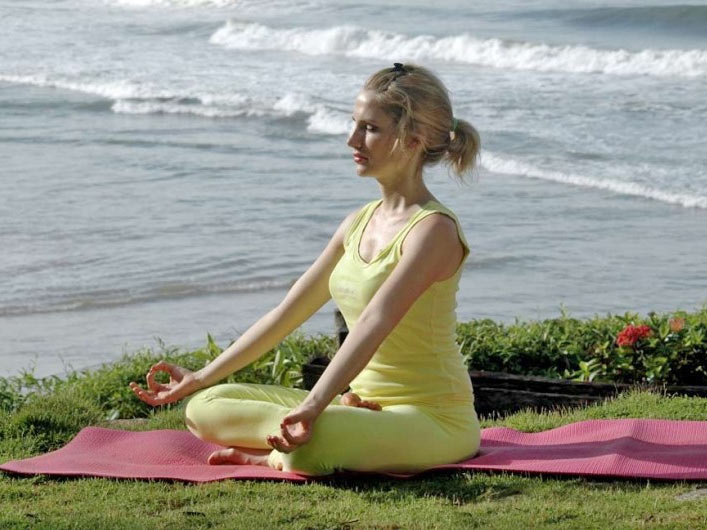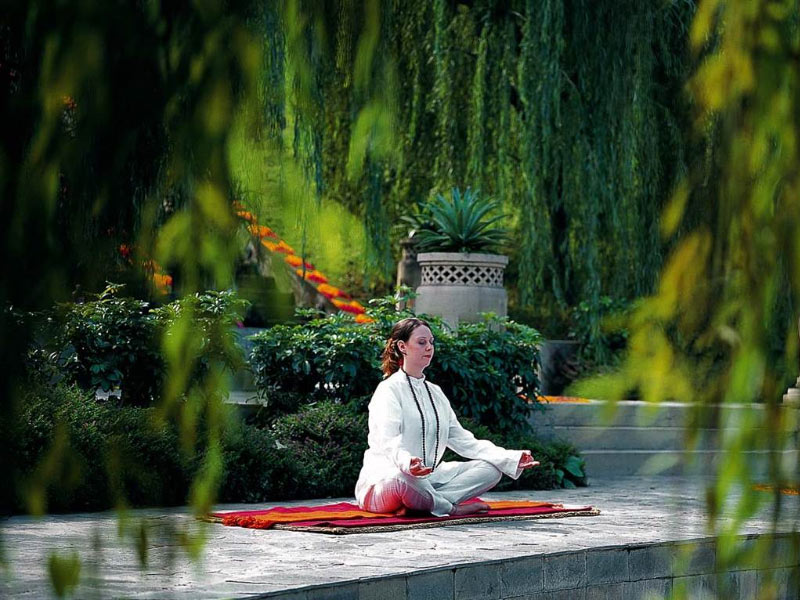

India has long been fabled for its astonishing range of wellness and healing traditions which go back over many centuries. The wisdom and knowledge on these subjects, so beautifully and succinctly documented in the country's ancient treatises related to health and well-being, are becoming more and more relevant to the ills and ailments surfacing in our present world not in India alone but the world in general. The beauty of it is that these are living traditions in India and people from all over the world kings and commoners all, come to find sustenance and succor not just for the body but also for the soul. Yoga, Ayurveda, Naturopathy these are the leading alternative wellness systems that address many aspects of human distress and stress and bodily ailments. The wonder is that you can travel to any part of India and you will discover local medical practices which have their moorings in these olden healing traditions. Ayurveda treatments and yoga courses are designed for individual needs and this is the epic reason for their efficacy. From Rishikesh to Kovalam from Jaipur to Delhi today one can choose a luxury spa or some Ayurvedic retreat, or any one of India's reputed Naturopathy and Holistic Healing retreats with their wide range of options of massages and other treatments or one can choose a pared-down austere mediation regime at the Yoga ashrams and retreats each helps in its own way for a particular medical condition or just for a general sense of well-being.
Ayurveda, a natural system of medicine considered as an alternative medicine system, with historical roots in the Indian subcontinent originated more than 3,000 years ago. The term Ayurveda is derived from the Sanskrit words ayur (life) and veda (science or knowledge) Hence Ayurveda can be described as the knowledge of life. Based on the idea that disease is due to an imbalance or stress in a person's consciousness, Ayurveda encourages certain lifestyle interventions and natural therapies to regain a balance between the body, mind, spirit, and the environment.
The main classical Ayurveda is a chain of the transmission of medical knowledge from the gods to sages, and then to human physicians and therapists. Ayurveda therapies, varied and evolved over the time, include Internal purification process, herbal medicines, special vegetarian diet, herbal remedies, massage therapy, yoga, meditation laxatives, enemas and medical oils.
In Ayurveda texts the concepts of universal interconnectedness, the body's constitution (prakriti), and life forces (doshas) are the primary basis of ayurvedic medicine. Do?a balance is emphasized, and suppressing natural urges is considered unhealthy and claimed to lead to illness. Ayurveda treatises describe three elemental do?as viz. v?ta, pitta and kapha, and state that balance (Skt. s?myatva) of the do?as results in health, while imbalance (vi?amatva) results in disease. Ayurveda treatises divide medicine into eight canonical components. Ayurveda practitioners had developed various medicinal preparations and surgical procedures from at least the beginning of the common era. Goals of treatment aid the person by eliminating impurities, reducing symptoms, increasing resistance to disease, reducing worry, and increasing harmony in life. Herbs and other plants, including oils and common spices, are used extensively in Ayurvedic treatment.
Ayurveda can have positive effects when used as a complementary therapy in combination with standard, conventional medical care.





